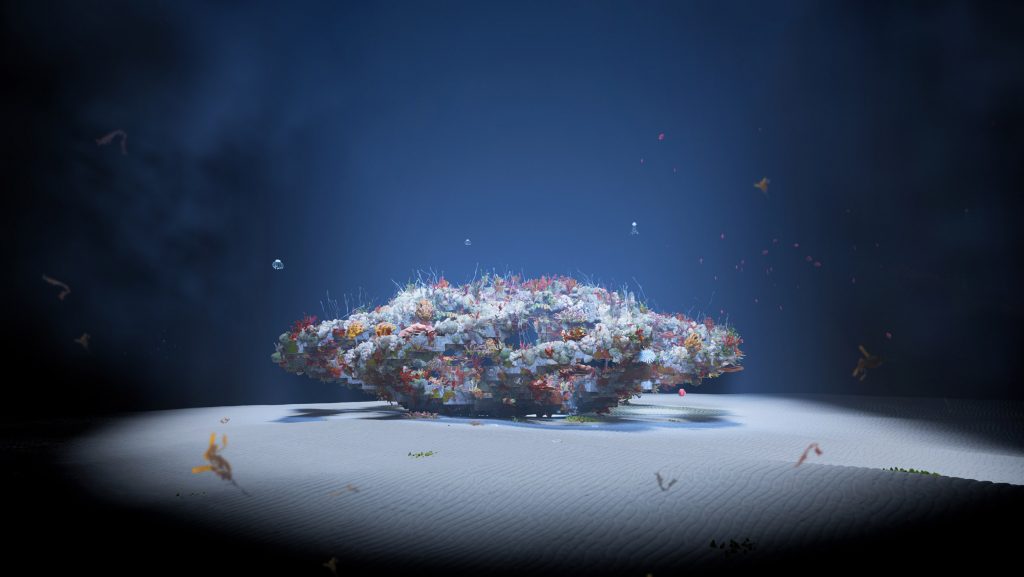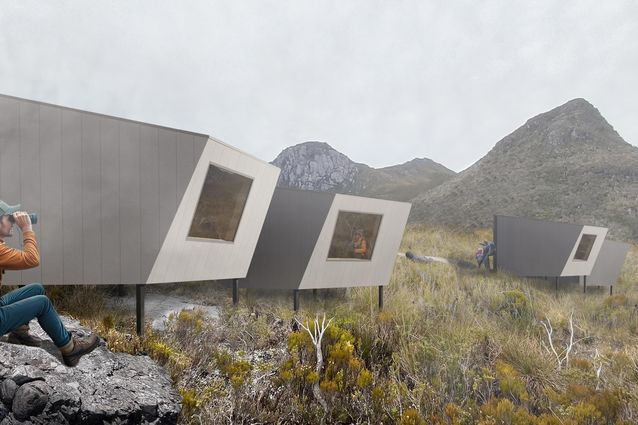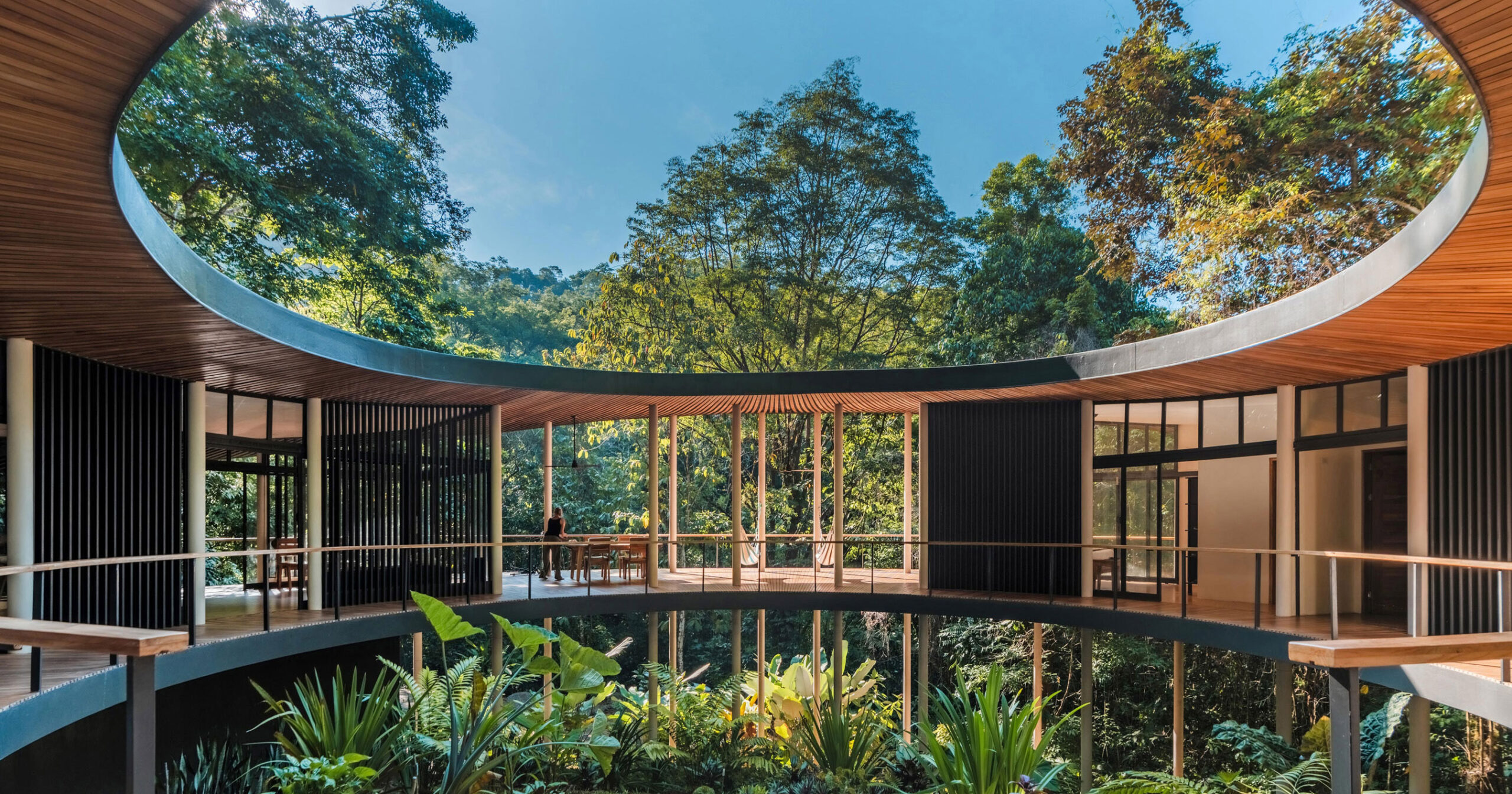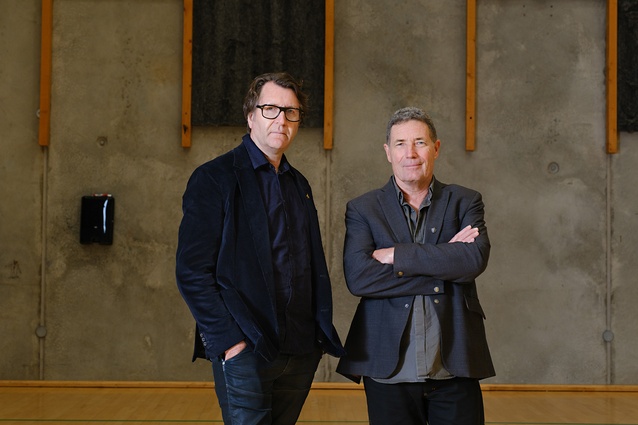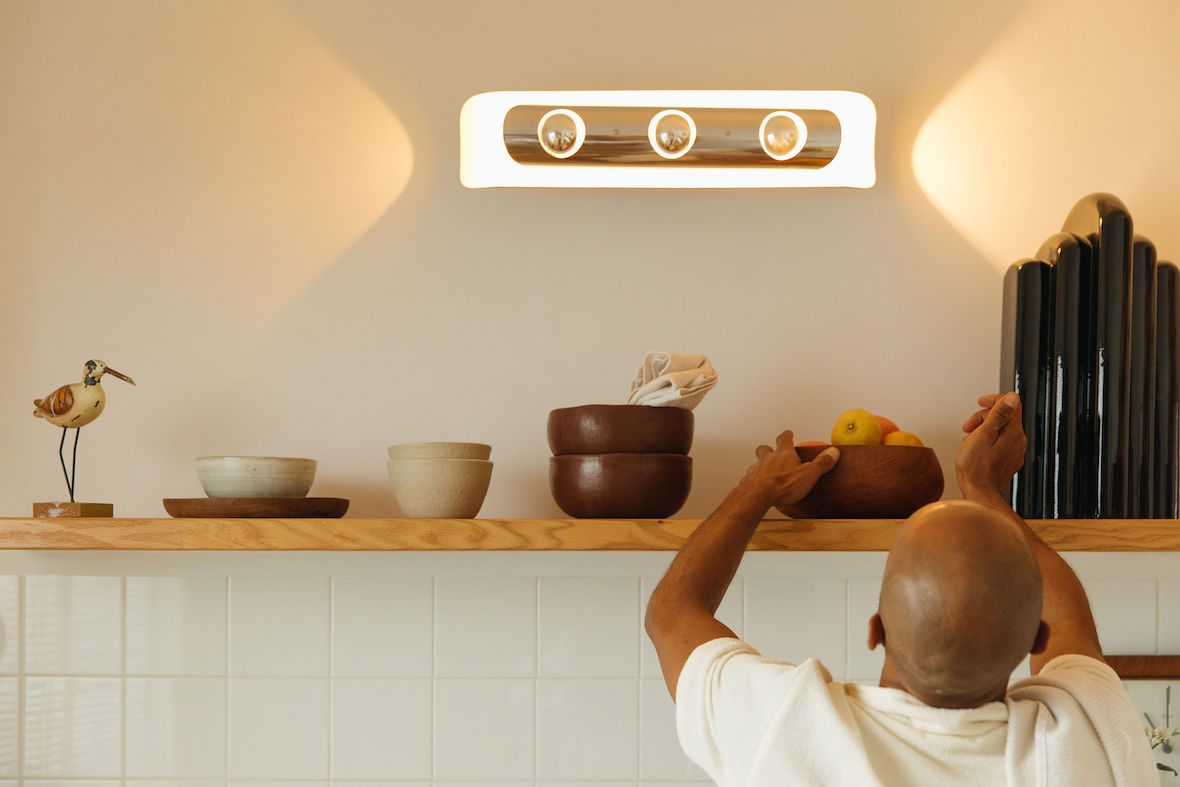[ad_1]
Visualisation artists Charlotte Taylor and Nicholas Préaud have created an NFT artwork based on an OMA-designed sculpture that will form part of an underwater park near Miami Beach.
Taylor and Préaud’s video artwork is focused on a sculpture named Coral Arena that was designed by Shohei Shigematsu, who heads architecture studio OMA’s New York office.
The piece was sold as an NFT to help promote the ReefLine sculpture park, which is set to be built off the coast of Miami Beach and was also designed by OMA. A physical version of the sculpture will form part of the underwater park.
The video shows the sculpture being displayed in a museum, before being immersed in the sea and covered in coral.
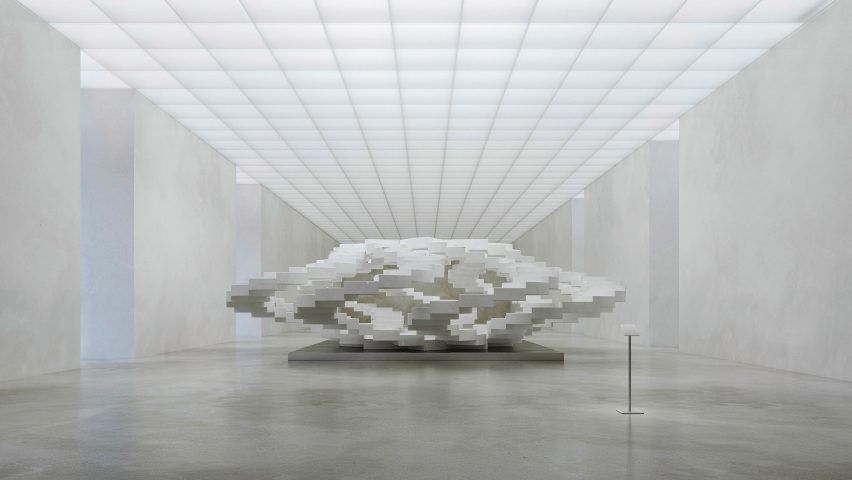
“The NFT is meant to depict the unique nature of the ReefLine sculpture,” OMA told Dezeen. “It would at first appear to be more appropriate or fitting in a museum, so the video begins with the sculpture displayed as a static piece of artwork in a scaleless, white box setting.”
“As the film transitions to the underwater deployment of the sculpture, we hope that people understand that this is the true purpose of the sculpture, whose physical twin will be placed underwater off the coast of Miami Beach,” explained OMA.
“The sculpture is a piece of resilient infrastructure as much as it is a formal object. The form will encourage coral reef growth, creating a new aquatic ecosystem that helps to protect the coastline.”
Taylor and Préaud collaborated with OMA to create three artworks to be sold as NFTs. Alongside the video, two stills were created.
The first, named Coral Arena/2021, shows the sculpture in a fictional gallery, and the second, named Coral Arena/2031, shows the piece after it has been sunk in the ocean for ten years as part of the sculpture park.
The pieces were created to draw attention to the positive environmental impact of the project.
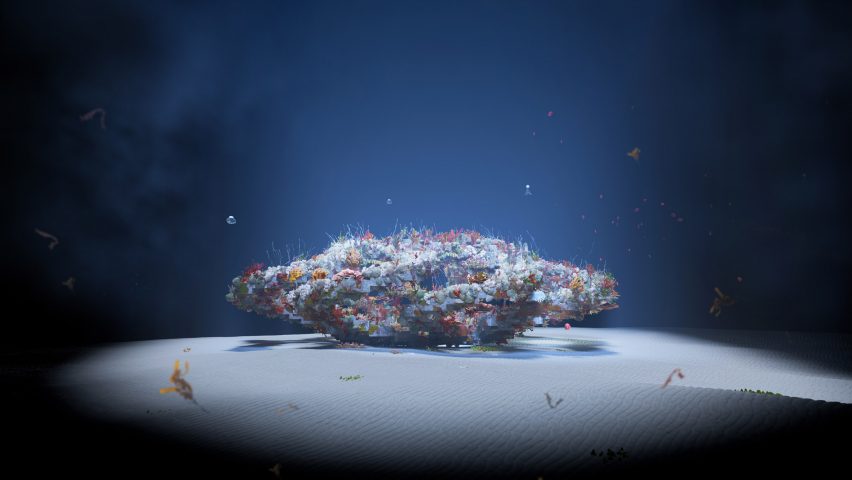
“With the built environment expanding at an exponential rate, we wanted to highlight the projects within this quota that give back to the environment,” Taylor told Dezeen.
“OMA’s structure for the Reefline project is one of these poignant projects; rebuilding an ecosystem and redefining the coastline of Miami,” she continued.
“The structure itself is a sculptural masterpiece yet it has very modest purpose; architecture not for the masses but for the aquatic ecosystem. We hope to convey this humble monument and its very meaningful impact though following its journey.”
“This 35 second short film is an essay both on the architectural and environmental aspects of this project,” Préaud told Dezeen.
“It builds up in intensity to the point where the structure is barely recognizable, and nature has taken its rights back.”
The Coral Arena sculpture will be formed from nine spiral staircases arranged around a central core. It will be installed as part of the sculpture park, which is currently under construction.
“Our sculpture explores the nature of weightlessness underwater – the stair, a rudimentary architecture element suggestive of directionality and movement, is taken out of its usual context and transformed into an underwater folly,” OMA said.
“Like the circular formation of the atoll, the series of sinuous spiral stairs create a three-dimensional structure reminiscent of marine life,” it continued.
“The organic form provides layered zones for coral reef growth and interstitial spaces for unique underwater experiences. The stairs rotate around a central forum for underwater gathering and activities.”
Alongside OMA’s sculpture, the park will contain pieces from multiple designers including Argentinian conceptual artist Leandro Erlich. He will create an underwater version of his Order of Importance traffic jam installation, which was originally made of sand and installed on Miami Beach.
[ad_2]
Source link

